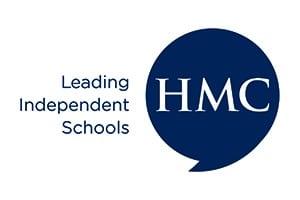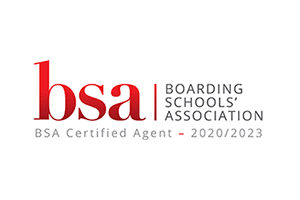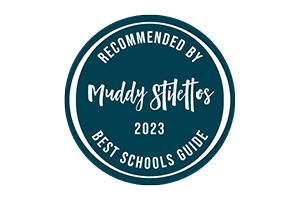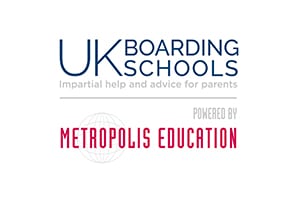Icenian Interview – Charlotte F
Charlotte F joined Langley in 2008 to do her GCSEs and left in 2012 after gaining A-Levels in English Literature, History and French. Here we find out about her academic pursuits after school and her onwards career.
Did you know what career you wanted to follow when you were at Langley?
No, not really! During my GCSEs, I really wanted to be a Doctor or a Vet. Then, two weeks before starting my A-Levels, I realised that I didn’t enjoy the experiments in Biology and Chemistry classes, and that consequently pursuing a career in medicine was probably not for me. I also couldn’t imagine not studying English Literature, and decided that I actually wanted to become a Journalist or a Publisher.
Which extra-curricular activities, teams and trips were you involved in at school?
I focused heavily on the Arts and Music. I had a few more formal roles, such as co-Editor-in-Chief of the student newspaper ‘Langley Lines,’ President of the Debating Society, and Head of House for Beauchamp. I was also part of the School Choir and Orchestra (cellist), and performed at all the school music concerts, my favourite being the Summer Proms concert!
There were three stand-out trips for me while I was at Langley. The Montreaux Jazz Festival Tour with the Music Department – I will never get the chance to sing on stage at that festival ever again. The trip to Berlin with the Foreign Languages Department in the final year of my GCSEs, while Berlin was under 12 inches of snow. Lastly, but by no means least, the trip to Kenya, which was truly a life changing experience and also saw my first article published in a local newspaper!
Linking to the above, do you think any extra activities you took part in have been useful?
All of them! Most of the activities meant that I was able to develop my team-working skills and my ability to lead, which provided me with the base skills for moving into work – potentially more so than my Undergraduate and Masters Degrees! In particular, though, as a Civil Servant working in the development of Policy, my background in debating has proved invaluable.
What did you do at university?
I went to Queen Mary, University of London and undertook a BA in English. However, I also participated on an international exchange program, which meant that for the second year of my degree I studied at the University of Melbourne, Australia. On completing my BA, I continued on at Queen Mary and undertook an MA in Postcolonial and Global Literature.
How did your career begin?
While at university, I thought I’d still go into either journalism or publishing. However, at the end of my undergraduate degree, I really wanted to pursue academia further, and so embarked on a Masters. Towards the end of my Masters I began to apply for PhDs, with the hope that I would secure some funding and enter a life of academia focusing on South African and Caribbean post-colonial literature. However, it is notoriously difficult to secure PhD funding, and I knew I needed to find an interim job so that I could apply for PhD funding again the following year.
With my PhD dreams crushed, like many graduates, I didn’t really have a clear idea of what to do. So I applied for a number of graduate programmes in publishing, journalism, marketing, and I also applied for the Fast Stream to join the Civil Service, specifically to work in Communications. Having got most of the way through the Fast Stream, I didn’t make it through the one-day intensive interviews and exercises. To my surprise, a few weeks later I received an email saying that I’d been identified as a candidate to be put on the Direct Appointment Scheme. A few weeks later again, the Department for Work and Pensions offered me a place on their internal Policy Graduate Scheme. Since starting, I haven’t looked back. So it’s safe to say I definitely did not plan on pursuing my current career, but I have pursued things that I’ve enjoyed doing.
Where are you now in your career and what have been the highlights?
I’ve been at the Department for Work and Pensions for just more than three years now, and I’ve had a lot of varied experience. I’ve worked in the Office for Disability Issues, developing strategies and initiatives to improve accessibility for disabled people. My highlight there was writing a number of speeches for the Minister for Disabled People, and developing and leading a key Ministerial priority – the Disability Sector Champions. I’ve worked in Private Office, directly supporting the Policy Director General in the formation of the department’s policy and in corporate matters. I’ve worked on Defined Benefits Private Pensions, leading on some very technical and legally complex legislation for the Pensions Bill, which is currently going through Parliament. My highlight there was definitely supporting the Minister in Parliament late into the evening. Right now, however, I’ve been redeployed due to the Coronavirus pandemic and am working on Labour Market strategy.
On reflection, did your time at Langley School help inform your career choices and your attitude to your career progression?
My time at Langley definitely helped me to identify what it is I actually enjoyed doing. The teachers were keen to encourage enthusiasm and a love for their subject, but they also supported me in making that choice between Science/ Mathematics and Arts/ Languages.
In fact, although I haven’t pursued a PhD and a career in academia, I still have a love for colonial and postcolonial literature. All credit for introducing me to the genre and the concepts must be given to Mr Wood, for handing me a copy of Conrad’s Heart of Darkness to read, and then suggesting that I read Achebe’s Heart of Darkness. Not only did I choose to write my A-Level coursework on these novels, but the focus of my undergraduate degree, masters, and proposed PhD was on colonial and postcolonial literature – my love of which directly links back to my time at Langley.
Is there any advice you would like to give to students currently considering joining Langley?
I was never meant to go to Langley. I was visiting school Open Days with my mum and brother, as my brother’s former school finished at Year 8 and, as were driving away from the school, I told my mum that I also wanted to go to Langley. This is a decision I have never regretted.
Langley has an all-round focus. The teachers not only encourage pupils to pursue their passions – be it sports, music, art, drama, science – but also instil passion in all students. You should be in no doubt that, regardless of what it is you choose to do or pursue, you will be supported throughout your entire time at Langley. Make the most of it!
In this section:

